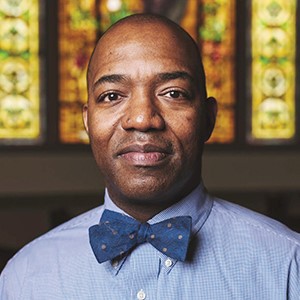

Question and Answer
If the Lord does not show partiality, why does the gospel go to the Jew first then to the Greek?
When a Christian dies, Corinthians 5:8 says that when we are “away from the body” we are then “at home with the Lord.” When an unbeliever dies, does he go directly to hell?
In Matthew 18:17, Jesus says to treat church members who are in sin in the same way as tax collectors, but a few verses later Jesus says to forgive people 77 times. Are we supposed to forgive or shun people in sin?
If the Lord does not show partiality, why does the gospel go to the Jew first then to the Greek?
Scripture says that there is no partiality with God (Psalm 82; Prov. 28:21; Luke 20:21; Acts 10:34; Rom. 2:11). Therefore, we can conclude that the idea of the gospel going to the descendants of Israel first cannot communicate the idea of partiality. Instead, the movement of the gospel from the Jews to the Gentiles should be understood as priority rather than partiality.
The Lord’s dealings with humanity to provide redemption from sin began in Genesis 3:15 and advanced in Genesis 12 through the line of Abraham and his descendants. He narrows this line to Isaac over Ishmael and Jacob over Esau. The descendants of Jacob—Israel—become the stewards of the promise of redemption as both the recipients and the mediators to the peoples of the earth (Gen. 12:3; 26:4; 28:14).
The Lord makes promises to Israel that He has sworn to uphold: “Theirs . . . are the promises . . . and from them is traced the human ancestry of the Messiah” (Rom. 9:4–5; see also Heb. 6:13–14). The Lord gave stewardship of His word of promise to Israel, and when the gospel is preached, the Lord demonstrates His faithfulness to keep His promises to Israel by coming to them first.
If I had a plate of cookies on which all of the cookies were of equal quality and taste, I could offer to share the plate with my children. If I hold out the plate to the youngest first, I am not demonstrating partiality; I only am prioritizing her as the youngest child. Each child still has the offer of a cookie from the plate, and each child has the offer of a cookie of the same quality and taste.
When one preaches the death and resurrection of Christ to Gentiles, they receive the same gospel that Israel has been offered. As the Gospels and the book of Acts recount, the initial preaching of the gospel went to Jewish people. The Lord is faithful to Israel and His promises to them are true, and both Jews and Gentiles have equal access to Christ through the gospel by faith (Gal. 3:14; Rom. 3:30).
When a Christian dies, Corinthians 5:8 says that when we are “away from the body” we are then “at home with the Lord.” When an unbeliever dies, does he go directly to hell?
After a person dies, he faces judgment (Heb. 9:27). Jesus said, “Whoever believes in the Son has eternal life, but whoever rejects the Son will not see life, for God’s wrath remains on them” (John 3:36). All verses on the eternal, conscious punishment of people in hell assume the person who left this world continues in some form of existence in the age to come—a form that can feel torment eternally (Mark. 9:48; Rev. 14:11). There is no intermediary step between departure from this world as an unbeliever and punishment in hell. The only hope is for an unbeliever to respond in faith to the gospel in this present life.
In Matthew 18:17, Jesus says to treat church members who are in sin in the same way as tax collectors, but a few verses later Jesus says to forgive people 77 times. Are we supposed to forgive or shun people in sin?
In Matthew 18, Jesus tells the Parable of the Unmerciful Servant to demonstrate what forgiveness looks like: a complete releasing from a debt that does not demand repayment for the wrong done. The first servant experiences relief from debts owed to the king without losing his family or being imprisoned. Later, however, the king condemns him for demanding payment from the second servant.
But the restoration of relationship does require an acknowledgment of wrongdoing by the offending party. You can release someone from a debt, refusing to require repayment, and yet refuse to restore the person to a status of trusted friend. If a Christian (i.e., “brother,” v. 15) commits an act of offense toward another believer and refuses to admit fault, seek forgiveness, and make restitution, the church should enter the conflict between the two parties.
The restorative process involving two or three witnesses and the church body seeks the holiness of the offending person. A refusal to acknowledge offence allows one to stay in sin—and both the offense and the lack of seeking reconciliation are sins. Once the offender rejects the church body’s appeal to be reconciled, the offender is endangering the entire church body. That is, through his failure to admit fault and seek forgiveness at the request of the church, the offender is not recognizing the holiness of the church body, the authority of its leadership, its operation through its members’ love and humility, or its witness in the world.
The offending person who is unwilling to reconcile is not behaving like a Christian and should be treated like a tax collector—that is, removed from the church body. Although any such action is painful to the full local body of believers, it is the righteous thing to do in obedience to our Lord.




